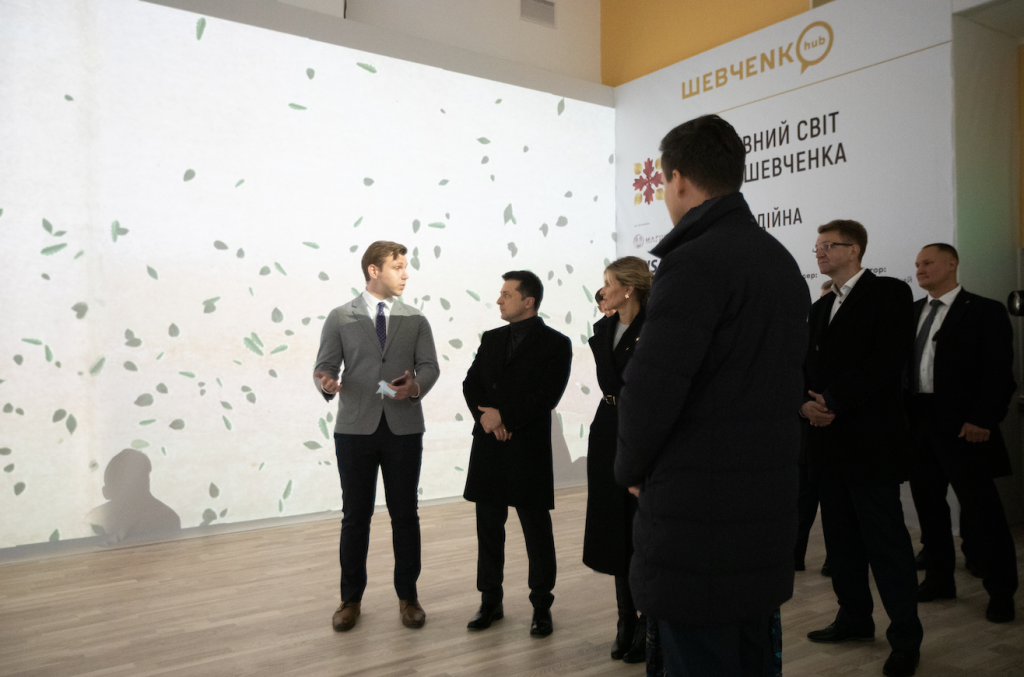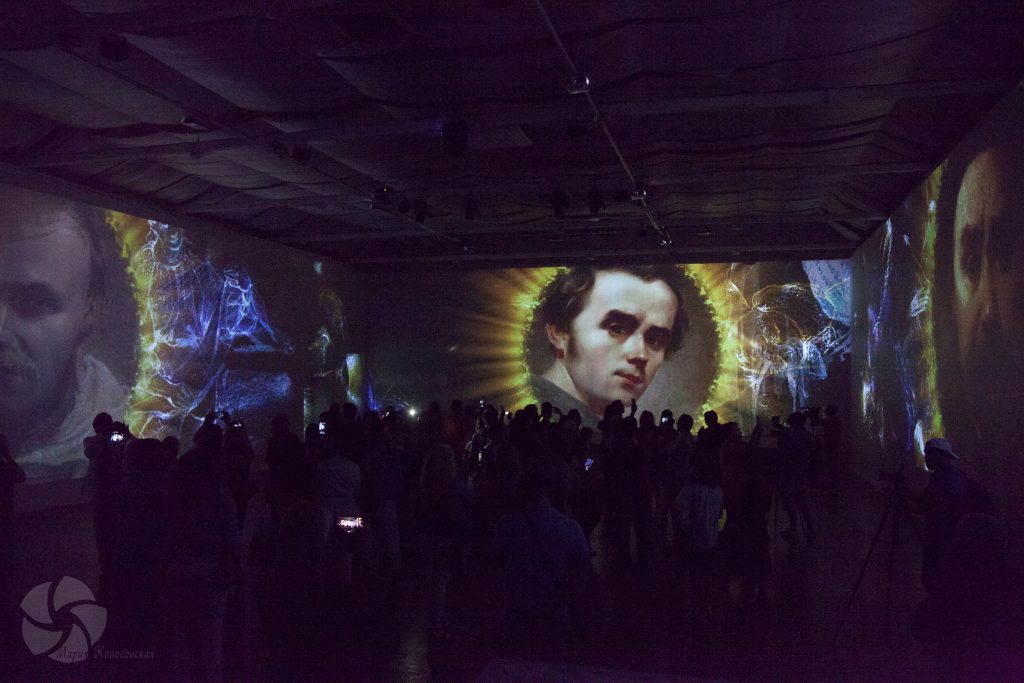An immersive exhibition dedicated to the work of Taras Shevchenko (1814–1861), the Ukrainian poet and artist who is credited as a founding figure in the country’s cultural history, is coming to six North American cities.
Proceeds from the project, originally organized by Lighthouse Immersive, the company behind Immersive Van Gogh and Immersive Frida Kahlo, will be distributed to the Red Cross and National Bank of Ukraine Fund. Ticket buyers can choose which of the two organizations to direct their money toward.
The experience was first opened to the public in the port city of Odessa last year in a design managed by Lighthouse Immersive producer Valeriy Kostyuk in coordination with a team of Ukraine-based curators and consultants. Kostyuk also secured the cooperation of the National Museum of Taras Shevchenko in Kyiv, which shared images of the artist’s artworks for the exhibition.
“I have been moved and inspired beyond words by the endurance and resilience of the Ukrainian people in this moment and I am deeply thankful to the incredible team in Ukraine who partnered with me on this project, as well as to the producers at Lighthouse Immersive for standing with me in this moment,” Kostyuk said in a statement.
The show, which was visited in Odessa by Ukrainian President Volodymyr Zelensky, will now be staged in Toronto, Chicago, Denver, Los Angeles, San Francisco, and Boston beginning March 15.

Ukrainian President Volodymyr Zelensky visiting the immersive Taras Shevchenko experience in Odessa. Photo courtesy Carol Fox and Associates Public Relations.
Shevchenko, who was born into serfdom, was released in 1838 while completing his studies at the St. Petersburg Academy of Art, according to Lighthouse Immersive.
As a writer, painter, and spiritual advisor, he celebrated folk art and helped define Ukrainian identity when the nation was still part of the Russian Empire (1721–1917).
Andrii Bukvych, a Ukrainian diplomat stationed in Canada, said the Shevchenko experience was an opportunity to introduce North American audiences to the culture of his homeland.
“It is encouraging to see the art of one of Ukraine’s most prominent cultural icons being appreciated by audiences on the other side of the world,” Bukvych said in a statement. “It is important for the global community to know what is at stake, and what is under attack.”







